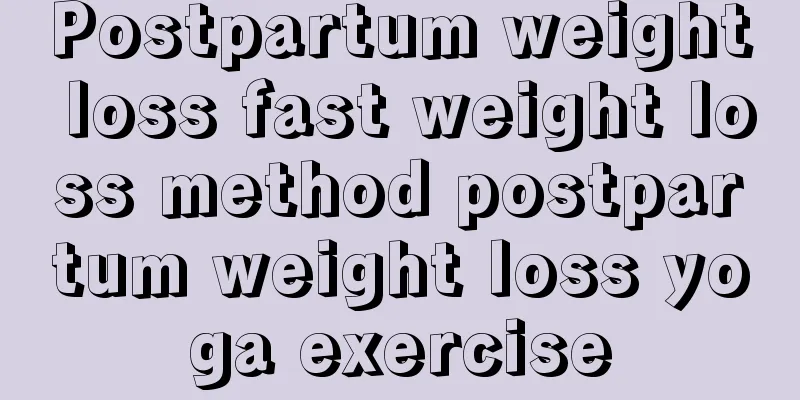The correct sleeping position for babies: three correct positions

|
Babies always have strange sleeping positions, which parents think are very cute. But did you know that it is actually necessary to maintain a correct sleeping position? Some incorrect sleeping positions will cause some bad habits and diseases, which may have a bad impact on the baby's development. So what is the correct sleeping position for the baby? Correct sleeping position for baby1. The correct sleeping position for babies: low side lying position Newborns maintain their in-the-foetus position with their limbs still bent. To help them expel some of the water and mucus swallowed in the birth canal, they should still be placed in a low side-lying position within 24 hours after birth. Side-lying sleeping does not put excessive pressure on important organs, but also helps relax muscles. If the baby spills milk, it will not choke the trachea. It is a sleeping position that should be promoted for children. 2. The correct sleeping position for babies: frequently changing sleeping positions Sleeping position will directly affect the growth and health of newborns, so it is not advisable to fix the sleeping position. Mothers should help babies change their positions frequently. In addition, the sutures of the newborn's skull have not yet completely closed. If they always or often sleep in one direction, it may cause head deformation. For example, lying on the back for a long time will make the child's head flat, and lying on the side for a long time will make the child's head crooked, which will affect the baby's appearance. 3. The correct sleeping position for babies: sleeping on their backs To prevent sudden infant death syndrome, you can gradually let your baby accept sleeping on his back. Although sleeping on his back will cause nearly half of newborns to have a tilted head, babies with tilted heads will have slight developmental delays, but usually this problem disappears by 18 months of age. It is also very simple to correct a tilted head, just let the baby sleep with his head facing both sides and adjust it regularly. Or you can directly let the baby use a wedge pillow or other equipment to keep the baby from sleeping on the side. The dangers of insufficient sleep for babies1. Affects height growth Studies have shown that 70% of a child's height is determined by the genes of his parents, and 30% is determined by his upbringing. Among these 30% external factors, sleep ranks first in terms of its impact on height, surpassing exercise and diet. This is because growth hormone is secreted during sleep, and growth hormone is secreted more when a person is asleep. Sufficient sleep helps to grow taller. Frequent lack of sleep will affect the secretion of growth hormone and affect height growth. It should be noted that there are two time periods when growth hormone is secreted more: 21:00-1:00 and 5:00-7:00, so it is recommended that children go to bed before 9 o'clock in the evening. 2. Reduce the body's immunity A large amount of epidemiological evidence shows that lack of sleep can lead to impaired immune function. Sleep is an important part of the body's recovery, integration and consolidation of memory. Frequent lack of sleep can reduce immunity and resistance, and in severe cases can aggravate the original disease and induce other diseases, such as neurasthenia, colds, gastrointestinal diseases, etc. It may even induce sleep-induced hypertension, diabetes, heart disease, cancer, etc. 3. Affects the brain’s creative thinking Long-term lack of sleep and insufficient rest will affect the brain's creative thinking and ability to process things. Studies have confirmed that changes in creative thinking and insight into problem solving occur during deep sleep. Deep sleep is closely related to memory processing, and the brain must rebuild memories before storing them in order to enhance creative thinking. 4. Impact on mental health Children who lack sleep are prone to depression, irritability, anxiety, tension, depression, and loneliness, which can seriously affect their normal psychological development. Does the baby sleep with a pillow?Whether or not a baby should sleep with a pillow, and whether it is good or not, depends on the baby's age and physical development. First of all, newborns aged 0 to 3 months do not need pillows. Because the spine of a newborn is straight, when lying flat, the back and the back of the head are on the same plane, which will not cause muscle tension and cause a stiff neck. A newborn's head is large, almost as wide as the shoulders, so it is easier to lie on the side. If the head is raised, it is easy to cause the head and neck to bend, affecting the newborn's breathing and swallowing, and may even cause accidents. You should know that pillows that are too high or too low are not conducive to sleep and normal physical development. Often using high pillows can easily cause hunchbacks, and can also affect breathing and blood circulation in the neck, so parents must be careful about the height of the pillow. When the baby grows to 3-4 months and can lift his head, the cervical spine begins to bend forward, and a 1 cm high pillow can be used at this time. When the baby starts to learn to sit at 7-8 months, the baby's chest spine begins to bend backwards and the shoulders also widen, so a 3 cm high pillow should be used. The height of the pillow for children aged 1-3 years old is best 6-9 cm. At this time, the child's spine is basically formed, and the pillow height can be gradually increased. Wrong way to sleep your baby1. Sleep with your hands as pillow Many babies like to sleep with their hands under their heads. They may feel safer when they sleep with their hands under their heads, but this sleeping position not only affects blood circulation, but also causes numbness and soreness in the arms, makes the baby feel tired after getting up, and sometimes increases intra-abdominal pressure. Over time, it can cause gastroesophageal reflux and damage the esophagus. Suggestion: When the mother finds that the baby sleeps with his hands as pillow, she should help him pull his hands out and put them away, and use a small pillow to cushion the baby, so as to help the baby correct this wrong sleeping position. 2. Open mouth breathing Some mothers will find that their babies like to breathe with their mouths open when sleeping, which is very cute. The drooling saliva also makes them look hungry. In fact, keeping your mouth closed when sleeping is the best way to maintain your vitality. If you open your mouth to breathe, it is not only easy to inhale dust, but also very easy to stimulate the trachea and lungs with cold air, affecting the quality of sleep. Long-term mouth breathing will also cause damage to the body and make you ugly~ Recommendation: When you find that your baby has the bad habit of breathing with his mouth open while sleeping, you should take him to the hospital as soon as possible to check the cause. Is it due to nasal congestion caused by a cold or fever, acute rhinitis or chronic rhinitis, or tonsillitis or enlarged tonsils, and prescribe the right medicine. 3. Sleeping with your head covered Some babies like to sleep with their heads covered, feeling safer under a blanket. In fact, this is unscientific and unhealthy. When sleeping with a blanket covering the head, as the concentration of carbon dioxide in the blanket increases, the concentration of oxygen will continue to decrease. Over time, this will lead to hypoxia, resulting in poor sleep quality, nightmares, and dizziness, fatigue, and lack of energy after waking up. Suggestion: When the mother finds that the baby is sleeping with the head covered by the quilt, she should promptly expose the baby's head so that the baby can breathe fresh air and not suffocate. 4. Sleeping with the wind blowing In summer, because of the hot weather, everyone likes to turn on the air conditioner at home; when it is cold in winter, people like to open the windows for ventilation instead of turning on the air conditioner. In fact, if you often sleep with the wind blowing, your neck and back will be cold, which will cause blood stagnation and tendon obstruction, resulting in stiffness and pain in the morning and clumsy movements. Recommendation: Sleeping facing the wind can easily cause cold and illness or respiratory diseases. Therefore, you should avoid drafts when sleeping and keep the bed at a certain distance from windows and doors. 5. Pajamas are too tight Some mothers like to put tight clothes on their babies, thinking that it is warmer. But in fact, pajamas that are too tight will not only affect breathing, but also lead to poor blood circulation and easy awakening during sleep. Therefore, you should put loose pajamas on your baby. Suggestion: To keep your baby warm, you don’t have to wear tight clothes. You can cover your baby with a thicker blanket. |
<<: How to teach your baby to walk? Parents should not rush
Recommend
What is the truth behind students cooking in class? How to improve children's interest in learning?
Recently, news broke out online that students wer...
How to tell if your baby has bow legs? How to do a physical examination for your baby at home?
The baby's growth stage requires our constant...
What should I do if my child is very clingy? What should I do if my child is very dependent?
Many children are raised by their mothers or gran...
How to divide baby rice cereal into sections? Why to divide baby rice cereal into sections?
Many mothers know that milk powder has detailed s...
What are the symptoms of rhinitis in children? The harm and severity of rhinitis in children
Rhinitis is a troublesome disease because it is d...
When is the most accurate time for early pregnancy test? When can early pregnancy test be used?
Many women tend to use early pregnancy test strip...
When will I give birth if I get pregnant in April 2017? When will I give birth if I get pregnant in April 2017?
Many parents will choose a time when preparing fo...
Are electronic mosquito repellents effective? Do electronic mosquito repellents have the effect of killing mosquitoes?
Electronic mosquito repellent is a very common mo...
How many times a day is normal for a breastfed baby to defecate? Introduction to the defecation of breastfed babies
How many times a day is normal for breastfed babi...
What brand of baby rice cereal is good? Comparison of 10 popular rice cereal brands
When the baby reaches a certain age, it is necess...
Is it normal to feel hungry during early pregnancy?
It is said that it is easy to feel hungry in the ...
Can women with asthma still get pregnant and have children?
Some women who suffer from asthma want to get pre...
What should I do if I have a difficult birth in water? Which is better, water birth or painless birth?
Although water birth can help mothers relieve pai...
Can I drink milk powder for pregnant women during breastfeeding? Is it good to drink milk powder for pregnant women during breastfeeding?
Whether it is during pregnancy or breastfeeding, ...
What should I do if I have difficulty defecating after a cesarean section? How can I defecate quickly after a cesarean section?
Postpartum constipation is a common problem for m...









